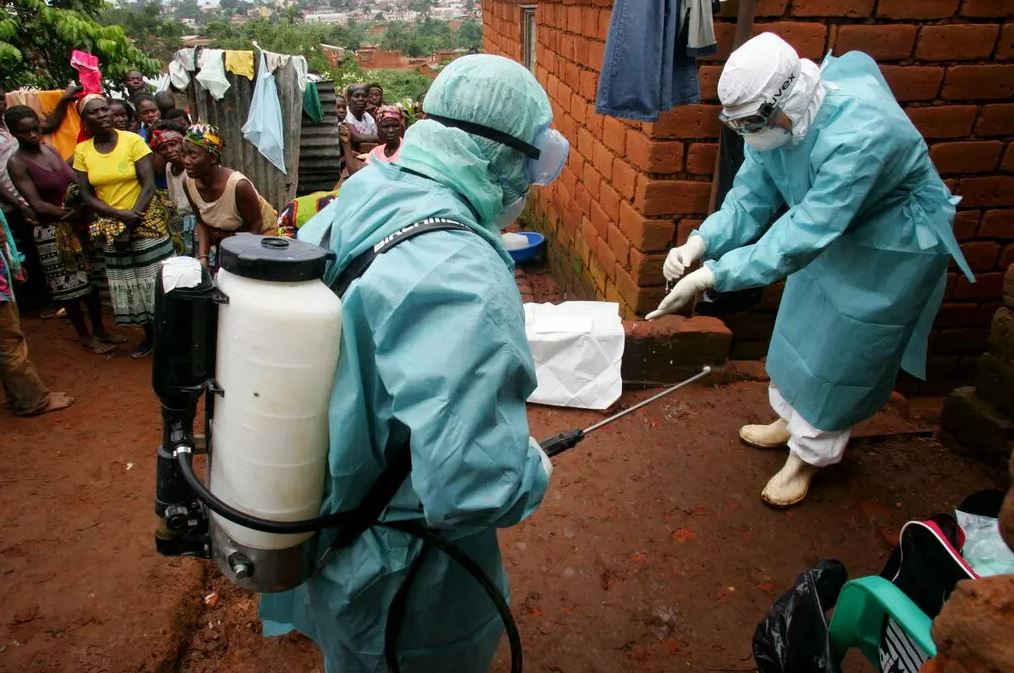The Marburg virus, a near relative of Ebola that may kill up to 90% of those it infects, has recently caused two simultaneous outbreaks, prompting urgent inquiries about the behaviour of this strange bat-borne infection and the efficacy of worldwide efforts to prepare for prospective pandemics.
Very few cases of Marburg, a hemorrhagic fever, have been documented since the virus was discovered in 1967. Yet, a rise in the number of incidents throughout Africa in recent years has caused concern.
In the most severe instances, Marburg may cause bleeding from the mouth, nose, and/or nose and throat. Infected individuals may transfer the disease to others by sharing needles, towels, or other personal items that have come into touch with their blood or other body fluids.
Nonetheless, certain candidates have showed promise in Phase 1 clinical studies for treating or preventing Marburg. Unfortunately, in order to demonstrate efficacy, these candidates need testing in ongoing outbreaks; yet, no vaccine supplies have been sent to test in the ongoing epidemics.
He said that although the World Health Organization and others are effective at responding quickly to stem the spread of a virus, researchers lacked the same agility. There is a lack of both vaccination candidates in shipping condition and researchers with the resources to do their work without further straining an already overburdened healthcare system.
It seems that the pandemic in Tanzania is being swiftly contained thanks to effective outbreak response, which involves isolating individuals and tracking contacts. There is concern that a broad epidemic and a renewed need for vaccinations would occur if the reaction is not as successful as it was in Equatorial Guinea.
In September 2022, an Ebola epidemic broke out in Uganda; the type responsible for the most deaths was one for which no vaccine existed; nevertheless, a promising candidate was sitting by, waiting for its turn to be tested. Researchers have stated their intention to test it in Uganda. However, by the time the vaccination supplies arrived, the epidemic had already ended.
The government of Equatorial Guinea has disclosed little details on the epidemic, and the World Health Organization has warned that the disease may have spread farther than first believed since not all of the confirmed cases are linked.
Both outbreaks, according to the WHO, pose regional threats because of Equatorial Guinea’s porous borders with Cameroon and Gabon and the dispersed nature of the cases thus far. The Kagera area of Tanzania has borders with three different countries: Uganda, Rwanda, and Burundi.
In contrast to the previously infrequent occurrences, these outbreaks follow those in Ghana and Guinea during the preceding two years. Dr. Amuasi speculated that improved case counting was to blame for the apparent increase. According to him, increased rates of Marburg diagnosis may be attributed to the increased capability of PCR testing and enhanced infectious disease monitoring implemented throughout Africa in response to the Covid-19 outbreak.
Climate change and the ways in which it is altering human and animal behaviour, according to Dr. Nancy Sullivan, head of Boston University’s National Emerging Infectious Diseases Laboratory.
While at the National Institute of Allergy and Infectious Diseases, Dr. Sullivan developed the most advanced Marburg vaccine candidate. The Sabin Vaccine Institute in Washington, D.C., a non-profit that supports worldwide vaccine research, is continuing the testing procedure after Phase 1 clinical trial results demonstrated safety and immunological response.
The World Health Organization has not yet released trial logistics information for this or three other potential vaccines. A study would need a primary investigator from the epidemic nation, legal agreements with the vaccine producers, and regulatory clearance, in addition to the logistical difficulties of transporting the doses into the country. More than 30 years have passed with President Teodoro Obiang Nguema Mbasogo and his family maintaining absolute power in Equatorial Guinea’s famously secretive administration.
Dr. Amuasi warns that filovirus outbreaks would continue with little progress towards therapies that may halt them unless resources are committed and trial methods are preapproved.

